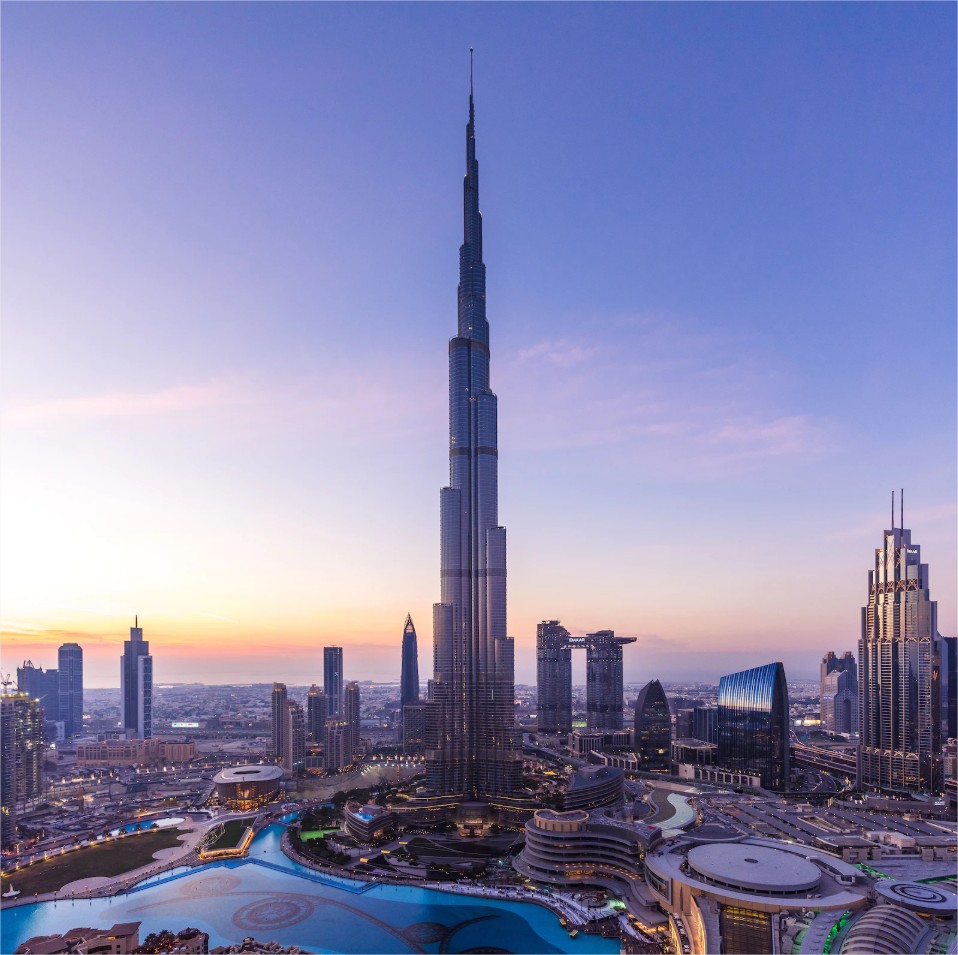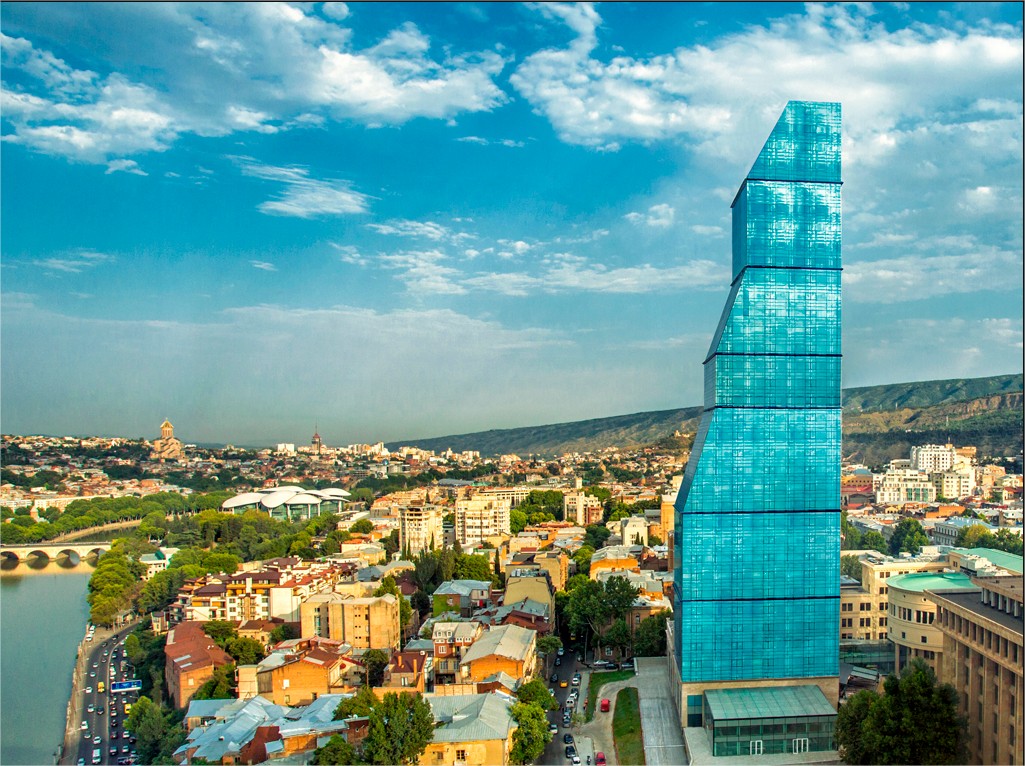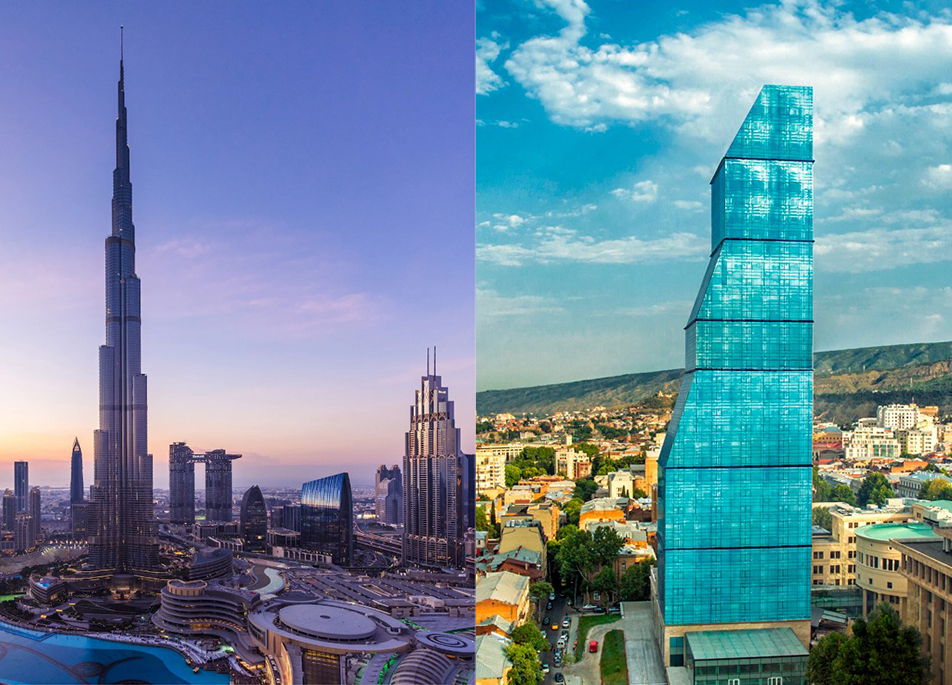A reflective inquiry into the shifting geographies of real estate – from Dubai’s vertical promise to Georgia’s grounded emergence.
I. Context: The End of Effortless Yield
For two decades, Dubai has stood as a global monument to ambition – a skyline born from sand and strategy. Its real estate market symbolized the modern investor’s dream: luxury, liquidity, and low taxes.
But systems evolve. Markets mature. And as prices rise and yields narrow, a quiet question surfaces:
When does opportunity stop multiplying, and start concentrating?
In that pause, another geography comes into view – Georgia, particularly its capital, Tbilisi.
Still accessible, still open, but governed by a different rhythm: transparent laws, tangible community, and growth rooted in real value rather than perpetual escalation.
This is not a story of competition. It’s a meditation on contrast – two models of prosperity speaking to different moments in the global psyche.
II. Property as an Expression of Access
In Dubai, entry to the market has become a mark of achievement – one-bedroom apartments starting near USD 300,000, square-meter prices rising beyond USD 4,000-6,000, and ownership confined to mapped-out “freehold zones.”
Tbilisi, by comparison, extends a simpler invitation: modern apartments from USD 100,000–120,000, unrestricted ownership for foreigners (except agricultural land), and direct access to the urban fabric itself.
Here, ownership is not gated, but shared.
Where Dubai refines exclusivity, Georgia democratizes entry — transforming property from status symbol into platform for participation.
III. The Geometry of Return
The mathematics of return reveal a subtler story.
Dubai’s gross rental yields hover between 3–6%, stabilized yet compressed by high valuations. Tbilisi’s yields rise higher, 5–7%, with short-term rentals reaching up to 11% — not because of speculation, but because affordability creates accessibility, and accessibility creates flow.
A USD 150,000 investment in Tbilisi can mirror the yield of a USD 300,000 property in Dubai. In systems language, this is leverage through simplicity. When capital requirements fall, participation expands. And when participation expands, resilience grows.

IV. Taxation as Trust Architecture
Tax systems, too, are forms of storytelling.
Dubai’s 0% property tax signals openness, yet transaction and maintenance costs quietly accumulate, 4–5% Dubai Land Department fees, regulatory compliance, and administrative layers that mirror the maturity of a post-growth market.
Georgia’s taxation, by contrast, is both visible and proportional.
- Annual property tax: around 0.8% of the property value, for high-income households.
- Rental tax: flat 5% for individuals, when registered as a landlord. .
- Capital gains: 0% after two years.
- Transfer fees: No stamp duty. Registration fees less than $300..
Rather than optimizing for invisibility, Georgia optimizes for legibility. Transparency, here, becomes a new form of advantage — the psychological yield of knowing where your value flows.
V. Residency as Relationship
Property is more than a transaction; it is a declaration of belonging. Georgia’s USD 150,000 property-linked residence permit acknowledges this — a policy that treats ownership as partnership, not merely investment.
In contrast, Dubai’s Golden Visa remains prestigious yet capital-intensive (USD 205,000+ threshold). Both systems offer access, but their philosophies differ: one sells status; the other extends reciprocity.
This divergence hints at a wider shift – from possession as privilege to presence as participation.
VI. Markets in Motion: Maturity vs. Emergence
Dubai today represents the mature phase of a success story — stable, high-liquidity, but increasingly saturated.
Georgia stands at the emergent phase — moderate liquidity, strong expat and tourism-driven rental demand, annual price growth between 5–10%, and a market still writing its narrative.
It is tempting to call this “early stage.” Yet, perhaps it is more accurate to call it pre-exhaustion: a system still light enough to evolve, still porous enough to include. Where Dubai’s skyline speaks of culmination, Georgia’s cityscape whispers of becoming.
VII. Rethinking the Investor’s Identity
Every investment is a mirror. Those drawn to Dubai often seek scale, prestige, velocity. Those now looking to Georgia seek balance, accessibility, continuity.
This migration of preference signals a deeper human recalibration, away from perpetual maximization, toward enoughness.
In the new global landscape, affordability becomes agency. Investors aren’t retreating from ambition; they are reimagining it, seeking yield that aligns with meaning, not just margin.

VIII. Beyond Geography: The Shift from Extraction to Regeneration
Dubai optimized for performance; Georgia evolves through participation. One represents the logic of systems that have peaked, the other the promise of systems still learning how to mature responsibly.
The deeper story is not “Dubai versus Georgia,” but scale versus substance, whether our next decade of mobility and investment will prioritize expansion or embeddedness.
IX. Towards a Reflective Market Ethic
If the last generation’s real estate ideal was luxury without limits, perhaps the next generation’s will be livability with integrity.
Georgia offers a glimpse of this possibility – a setting where ownership, taxation, and community operate as parts of one transparent design. It reminds us that prosperity is not only a matter of numbers, but of narratives that make those numbers make sense.
From Questions to Pathways: Living the Shift
✳︎ Invitation
Every question about real estate — yields, taxes, ownership, stability — points to something deeper: the search for clarity in a changing world. Georgia’s market invites not only investors but learners — people ready to explore a system where transparency replaces speculation and access replaces excess.
Below are practical reflections drawn from the journey between Dubai and Tbilisi — answers that begin to map that new terrain:
Q1. Which destination offers stronger rental performance?
Tbilisi continues to deliver 6–8% average rental yields, outpacing Dubai’s 4–7% range.
Lower acquisition costs and resilient demand mean your capital works harder — and with less friction.
Q2. Can foreigners buy freely in Georgia?
Yes. Freehold ownership is fully open for apartments and commercial property across the country, with only agricultural land restricted.
Ownership here is not permission — it’s participation.
Q3. How stable is the Georgian market?
Stable, transparent, and steadily maturing. Tourism, remote work, and expat inflows continue to reinforce demand, creating a cycle of organic growth rather than speculative spikes.
Q4. How are properties taxed in Georgia?
Property taxes are income-based, around 0.8% for higher-income households, with reductions or exemptions for others.
Declared rental income is taxed at a flat 5%, and capital gains are exempt after two years — simplicity written into law.
Q5. Does ownership lead to residency?
Yes. A property purchase of USD 150,000 or more qualifies for a renewable one-year residence permit — a policy that connects investment with belonging.
Q6. How does life in Tbilisi compare to Dubai?
Dubai remains an icon of infrastructure; Tbilisi, an ecosystem of livability.
Modern developments, walkable neighborhoods, and genuine community make the Georgian capital a grounded alternative for those seeking both comfort and connection.
✳︎ Moving from Insight to Action
The question now is less where to invest — and more how to begin wisely.
If you’re exploring Georgia as your next step, our dedicated Rental Assistant helps you identify high-yield opportunities aligned with your goals, while the Purchase Assistant guides you through acquisition, due diligence, and legal clarity.
And if you’re still defining your path, start with a Free Consultation — a space to map your options, understand the market’s rhythm, and find where your investment vision meets real possibility.
In the end, the journey from Dubai to Georgia is not just geographic — it’s philosophical:
from speculation to stewardship, from ownership to orientation.
The next step begins with a conversation.
If you prefer to go it alone in the research and selection process, we still can assist with the essential due diligence legal work.
